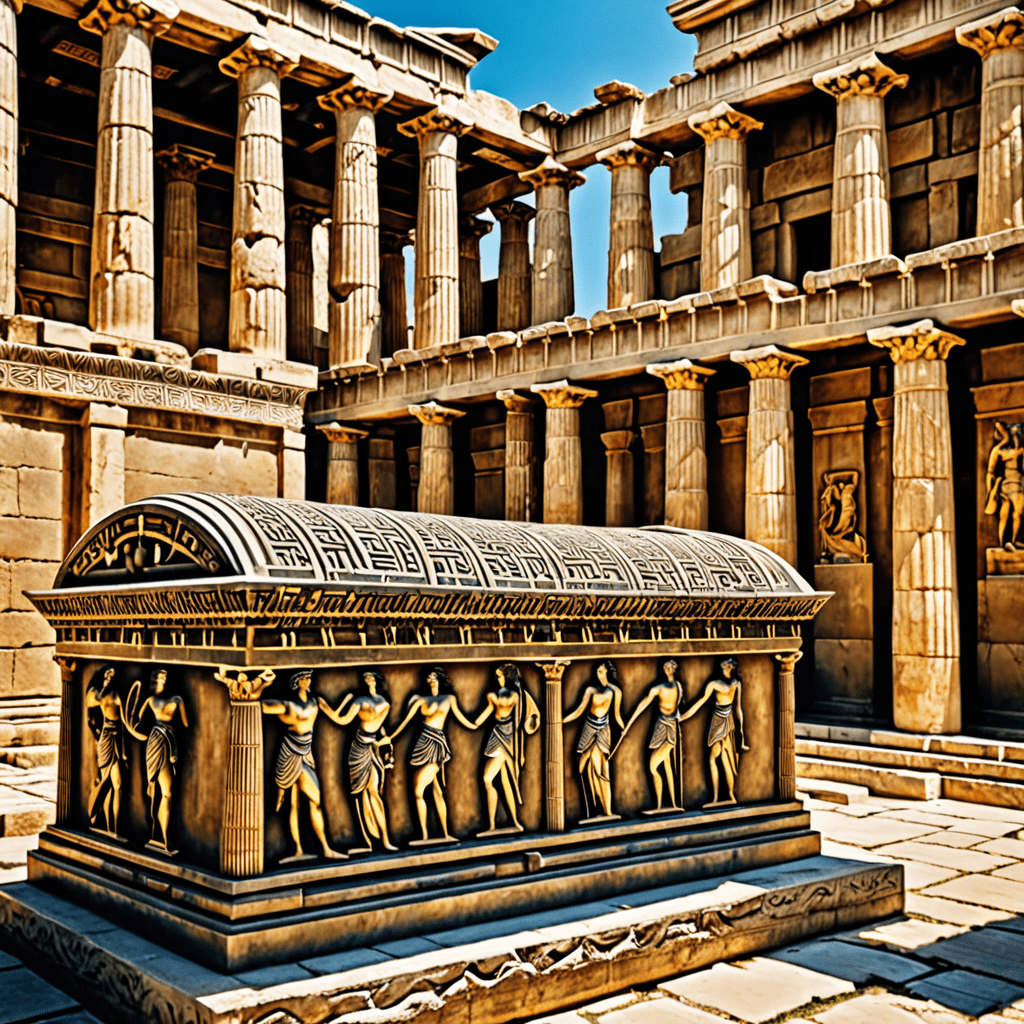The Symbolism of Tombs in Greek Mythology
In Greek mythology, tombs hold a significant place, representing various aspects of the afterlife, heroism, and divine connections. Let’s delve into the symbolism of tombs in Greek myths to understand their cultural and mythological importance.
The Symbolism of Tombs in Greek Mythology
In Greek mythology, tombs are not merely physical resting places for the deceased; they carry profound symbolic meanings that reflect the beliefs and values of ancient Greeks. Some key symbolisms associated with tombs include:
1. Final Resting Place
Tombs in Greek mythology are considered the final resting places for mortal beings. They symbolize the transition from the earthly realm to the underworld, where the deceased’s spirit finds eternal peace and rest. Heroes and warriors were often honored with elaborate tombs, signifying their valor and contribution to society.
2. Gateway to the Underworld
According to Greek mythology, tombs serve as gateways to the realm of Hades, the god of the underworld. In many myths, such as the story of Orpheus and Eurydice, tombs act as portals through which souls pass to reach the afterlife. The placement and design of tombs were believed to influence the journey of the soul in the afterlife.
3. Commemoration of Heroes and Deities
Tombs were also erected to honor and commemorate legendary heroes, kings, and even gods in Greek mythology. These monuments were built with grandeur and intricacy to pay tribute to the deceased’s exceptional deeds and divine lineage. The architecture and adornments of tombs often conveyed the status and virtues of the one laid to rest.
4. Connection to Sacred Sites
Tombs were frequently situated near or within sacred sites associated with gods and goddesses. By interring the deceased close to these divine locations, ancient Greeks believed in establishing a spiritual connection between the departed soul and the divine realm. Tombs thus acted as conduits for communication with the gods.
Understanding the symbolism of tombs in Greek mythology enriches our comprehension of ancient beliefs surrounding death, the afterlife, and the veneration of heroes. These symbolic representations not only served as cultural markers but also provided insights into the spiritual and philosophical foundations of ancient Greek society.
The DataColumn cannot be added to the DataColumnCollection this DataColumn’s DataType is not allowe.
FAQ About The Symbolism of Tombs in Greek Mythology
What is the significance of tombs in Greek mythology?
In Greek mythology, tombs symbolize the passage between life and death. They often represent the cyclical nature of life, where death is not the end but a transition to another realm. Tombs also signify honor and remembrance for the deceased, serving as a link between the mortal world and the afterlife.
Which Greek myths involve tombs as important symbols?
Several Greek myths feature tombs as crucial symbols. For instance, the Tomb of Agamemnon in Mycenae represents the power struggles and consequences of hubris. The story of Orpheus and Eurydice showcases the theme of love transcending death, with tombs serving as a boundary between the living and the dead.
How do tombs reflect Greek beliefs about the afterlife?
In Greek mythology, tombs reflect the belief in an afterlife where the soul continues its journey beyond the mortal realm. Tombs were considered sacred places where the deceased could rest peacefully and where the living could communicate with their ancestors. The elaborate design and rituals surrounding tombs highlight the importance Greeks placed on honoring and preserving the memory of the departed.



